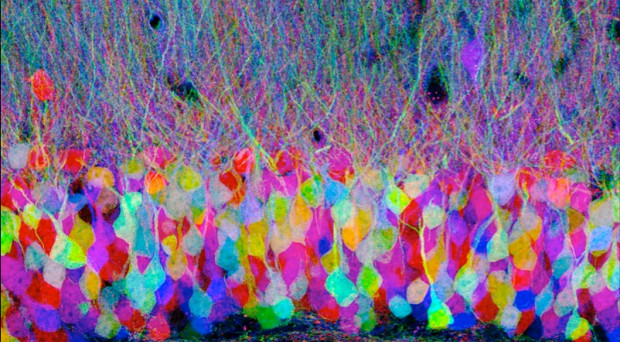
The past two decades have completely revolutionized our perception of the genetics of Parkinson’s disease. From a disease that was previously considered ‘not-genetic’, Parkinson’s has since been identified as having dozens of genetic risk factors.
However, the mounting data often do not simplify our understanding of the disease but rather complicate the picture. Many people with Parkinson’s ask why they developed the disease, and why they developed it at the time they did. In the vast majority of cases, the genetic data still do not provide answers to these questions.
Genetic risk factors
The genetic risk factors for Parkinson’s can be crudely divided into three groups, based on how strongly they predict the disease.
The first and smallest group is comprised of genetic mutations that cause Parkinson’s in all (or nearly all) those who carry the mutations. People who are carriers often have either a strong family history or a very early onset of the disease, in their twenties or thirties.
The second group of genetic risk factors, and perhaps the most confusing one, are those that significantly increase the risk of Parkinson’s (e.g., by 10-fold compared to the general population), but still many, if not most, mutation carriers will never develop the disease.
The last group of genetic risk factors are common variants on the DNA, where carrying those variants slightly increases Parkinson’s risk (up to two-fold in most cases). These variants are very common in the general population; many of them are present in 20-40% of the healthy population who will never develop the disease. Only the accumulation of such variants, or an interaction with particular environmental factors, would lead to its development.
Genetic testing
Clinical genetic testing for Parkinson’s has been available for over a decade. However, only a fraction of people with the disease receive clinical testing.
Clinical genetic testing for Parkinson’s has been available for over a decade. However, only a fraction of people with the disease receive clinical testing. In medicine there is a general rule regarding ordering tests. The higher the odds the patient would have a positive test, the more indicated the testing is (i.e. the more likely the test will be done).
For example, not all patients with headaches are referred to an MRI of the brain. But if there are ‘red flags’ which may suggest an abnormal finding in an MRI, like a tumor, the test (MRI) is more indicated.
Our experience with genetic testing is exactly the opposite. Often, the higher the chances someone carries a mutation, the less likely they are to be interested in obtaining the test.
Arguments against getting tested include that testing would not change clinical management of Parkinson’s, that positive findings may induce anxiety among first degree family members (who have a 50% chance of carrying the genetic risk as well), and a fear of discrimination (e.g. for employment or insurance purposes) based on the genetic findings.
In contrast, many feel that ‘knowledge is power’ and would like to have information on their genotype. What may sway the balance between the arguments for and against genetic testing would be developments whereby Precision Medicine reaches Parkinson’s, and clinical trials for ‘mutation carriers only’ are offered, allowing for the development of targeted therapies for carriers.
Many carriers will never develop it, but carrying a mutation in these genes significantly increases one’s risk.
This may be the case in the next few years for carriers of two genes, LRRK2 and glucocerebrosidase (GBA). Mutations in these genes are present in roughly 5% of all people with Parkinson’s and over 30% of Ashkenazi Jews with the disease. Many carriers will never develop it, but carrying a mutation in these genes significantly increases one’s risk.
The future of Parkinson’s
In summary, in spite of significant developments in the field of the genetics, progress has not yet affected treatment of Parkinson’s. I am very hopeful that in the next few years this will change and targeted therapies will be developed.
Hopefully both mutation carriers and those without mutations would benefit from genetically targeted therapies.
Comments